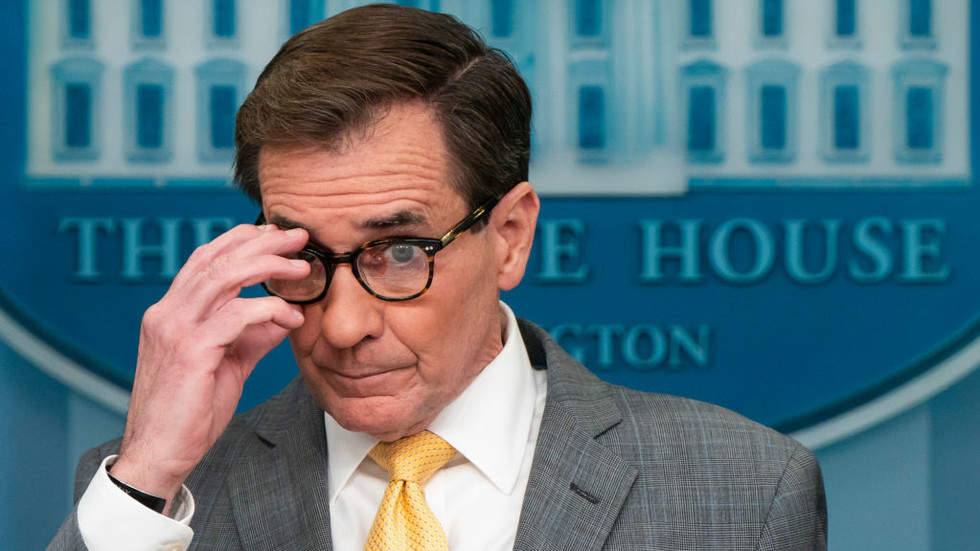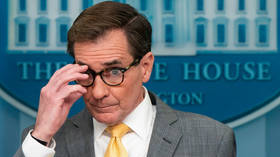
Moscow is currently “trapped” in the Ukraine conflict, John Kirby has claimed

US National Security Council spokesman John Kirby © Getty Images / Joshua Roberts / Stringer
The US does not believe Russia poses a direct threat to NATO’s eastern flank in the near future, White House National Security Council spokesman John Kirby told Polish news outlet Interia on Friday.
Kirby was asked about the possibility of a full-scale war between NATO and Russia, after recent Western claims of Moscow’s supposed threat to the US-led bloc.
“We do not see such an imminent threat at the moment,” Kirby said. “Now, of course, Russia is focused, not to say trapped, in Ukraine. We do not see a direct threat to NATO, to the eastern flank, we do not see it at the moment.”
At the same time, Kirby noted that Moscow opposes the strengthening and expansion of NATO, and that Russia treats the Ukraine conflict as a confrontation with the West and the US in particular. “That is why we are consistently strengthening our presence on NATO’s eastern flank. The president [Joe Biden] has sent an additional 25,000 [American] troops to Europe,” the spokesman stated.
Earlier this week, Kirby revealed that Biden had ordered direct dialogue with Moscow due to a “threat to national security.” The US president reportedly called for steps including regular briefings to Congress and diplomatic engagement with Russia.
READ MORE: NATO-Russia confrontation ‘could last decades’ – Stoltenberg
Russian President Vladimir Putin said in a recent interview with US journalist Tucker Carlson that NATO leaders are trying to intimidate their own populations with an imaginary threat from Moscow, but that “smart people understand perfectly well that this is a fake.”
This week, Putin also commented on former US President Donald Trump’s recent remarks, in which he suggested Washington should not defend NATO members that fail to meet the bloc’s spending targets. Trump’s approach to NATO “has a certain logic,” Putin said, while describing the military bloc as “an instrument of US foreign policy.”




